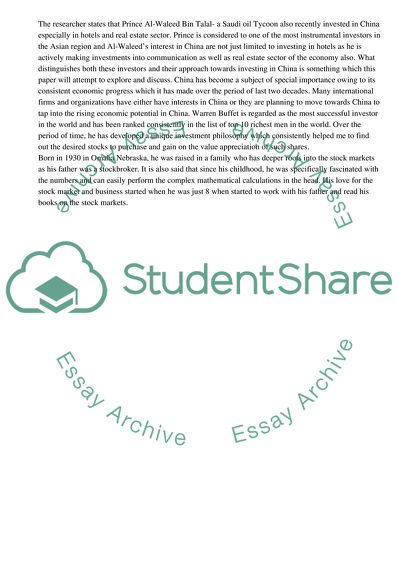Cite this document
(Al-Waleed vs. Buffet: Investment Strategies in China in Comparison Research Paper, n.d.)
Al-Waleed vs. Buffet: Investment Strategies in China in Comparison Research Paper. Retrieved from https://studentshare.org/business/1746861-al-waleed-vs-buffet-their-investment-strategies-in-china-in-comparison
Al-Waleed vs. Buffet: Investment Strategies in China in Comparison Research Paper. Retrieved from https://studentshare.org/business/1746861-al-waleed-vs-buffet-their-investment-strategies-in-china-in-comparison
(Al-Waleed Vs. Buffet: Investment Strategies in China in Comparison Research Paper)
Al-Waleed Vs. Buffet: Investment Strategies in China in Comparison Research Paper. https://studentshare.org/business/1746861-al-waleed-vs-buffet-their-investment-strategies-in-china-in-comparison.
Al-Waleed Vs. Buffet: Investment Strategies in China in Comparison Research Paper. https://studentshare.org/business/1746861-al-waleed-vs-buffet-their-investment-strategies-in-china-in-comparison.
“Al-Waleed Vs. Buffet: Investment Strategies in China in Comparison Research Paper”, n.d. https://studentshare.org/business/1746861-al-waleed-vs-buffet-their-investment-strategies-in-china-in-comparison.


